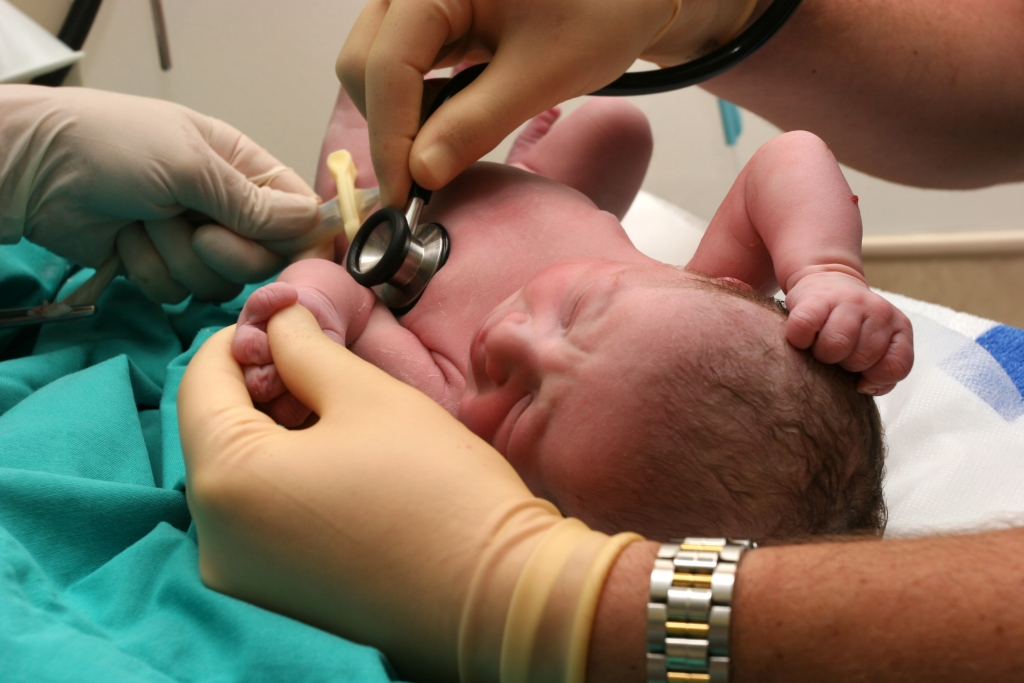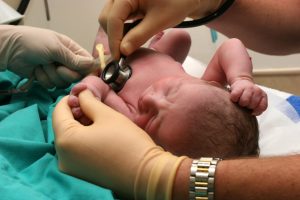Never thought it would happen to me – I was expecting-but not a hearing loss!
As an audiologist when one deals with hearing loss everyday, it tends to become so general to one, so common and you know it can happen to anyone, anytime – yet the thought rarely crosses your mind that you might one day be the one experiencing hearing loss – till the day that you do, i was expecting-but not hearing loss!
This is my story – The Audiologist with the hearing loss…(Caused by one of the most uncommon causes known!)
I was expecting my son, his due date was on the 6th of March, I had prepared myself for a natural delivery as opposed to my daughters delivery which was a c-section. Due to the nature of the situation (VBAC – Vaginal Birth after Cesearean), I couldn’t not wait any longer than 41 weeks and 10 days for him to arrive and could also not be induced due to risks of uterine rupture. On that day I visited my midwife and she broke the news – I would have to have a repeat Cesearean Section. I was devastated. But I had to accept it, unknowingly my c-section was scheduled 3 days later on the 19 of March, which turned out to be my birthday. I secretly hoped that he would make his appearance before then – but he seemed to enjoy it in there way too much!
My beautiful baby boy Reghardt was born via c-section and spinal aneasthesia on the 19th of March 2015, weighing a wonderful 3.89kg’s. Except for a bit of trauma due to struggling to get him out – he was wonderfully healthy, happy and content. I felt fine, and my Obstetrician even discharged me a day early.
What is a CSF leak?
A CSF leak is an escape of the fluid that surrounds the brain and spinal cord. This is typically caused by: Any tear or hole in the membrane that surrounds the brain and spinal cord (dura) can allow the fluid that surrounds those organs to leak. This fluid is called the cerebrospinal fluid (CSF). When it leaks out, the pressure around the brain and spinal cord drops.
Causes of leakage through the dura include:
- Certain head, brain, or spinal surgeries
- Head injury
- Placement of tubes for epidural anesthesia or pain medications
- Spinal tap /lumbar puncture
I immediately contacted a few colleagues and a wonderful ENT specialist colleague phoned me back and told me that he is very concerned. He instructed me to not lift my head from the pillow and take a course of high dosage cortisone tablets. He mentioned that he has seen 2 similar cases where individuals lost their hearing completely and received cochlear implant surgery. I followed instructions, except on 2 occasions where I respectively underwent hearing testing – the researcher in me took over!! I wanted to see what my audiograms looked like! Sure enough – I had a unilateral low frequency hearing loss. My first audiogram started at 60dB in the low frequencies and recovered towards the highs, and the second one started at around 30dB in the low frequencies.
My lovely little boy Reghardt who will be one years old on the 19th of March! Photo-Credit: https://www.monnasphotos.co.za/
I started feeling relief after about 2-3 days, and full relief around 7 days later. I have since not had a hearing test – But I have not experienced any symptoms of hearing loss of Tinnitus since this.
Why does hearing loss occur as an effect of a CSF leak?
Low-frequency hearing loss occurs after spinal anesthesia. However, the incidence rates reported varied between 3% and 92%. The occurrence of hearing disorders after spinal anesthesia is frequently associated with the “postspinal headache syndrome” and is probably associated with a lesion of the cranial nerve. These clinical symptoms result most likely from a loss of cerebrospinal fluid (CSF) by a leakage via the spinal puncture hole . This CSF loss, in turn, results in a subsequent decrease in intracranial and intracochlear pressure . The size of the spinal needle may be related to the incidence of hearing loss. Moreover, perhaps the auditory symptoms result from drainage of inner ear fluid (perilymph) through the cochlear aqueduct that connects CSF and the cochlear fluids. A transitory intralabyrinthine pressure decrease (i.e., perilymphatic hypotension) is therefore responsible for the hearing loss. *
*(Schaffartzik, Walter MD*; Hirsch, Jan MD*; Frickmann, Frank MD*; Kuhly, Peter MD*; Ernst, Arneborg Hearing Loss after Spinal and General Anesthesia: A Comparative Study. Anesthesia & Analgesia: December 2000 – Volume 91 – Issue 6 – p 1466–1472)
I am thankful for this experience, but I am also thankful that I haven’t experienced any permanent damage – which could easily have been if I did not have the information and knowledge that I did.
I have learnt a few things from this experience:
- It really is terrible having hearing loss and tinnitus! I have so much empathy for my patients with hearing loss and tinnitus – it is something that you cannot imagine or begin to imagine if you haven’t experienced it yourself.
- Knowledge is power. If I didn’t know what was going on and left it in the hope that it will resolve by itself – I could possibly have lost my hearing completely.
- Uncommon causes of hearing loss is a very “underrated” subject, and few people are thoroughly informed of uncommon causes such as this.
- I have wonderful and supporting colleagues that always goes the extra mile! Thank you!

